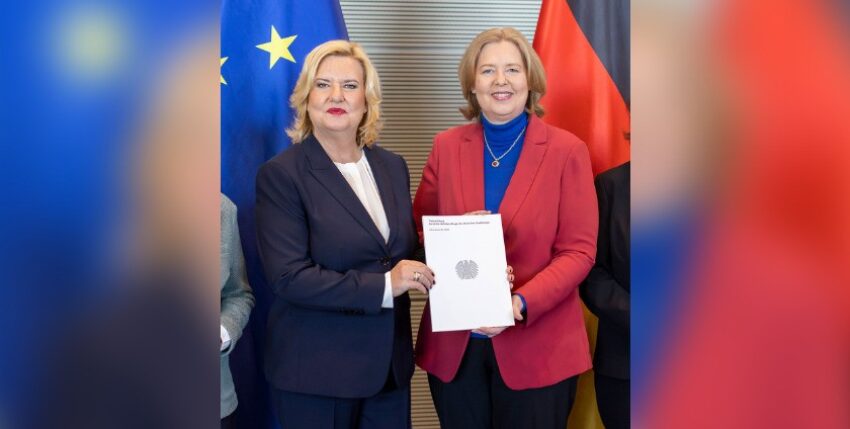The Defence Commissioner's 2022 annual report demonstrates the inability to promptly remedy the shortcomings in the armed forces. Despite ample funding.
Just over a year after Federal Chancellor Olaf Scholz announced the modernisation of the Bundeswehr in his "Zeitwende" speech, the Parliamentary Commissioner for the Armed Forces, Eva Högl, draws a sobering balance in her 171-page Annual Report 2022. The turnaround has not yet reached the troops. The Bundeswehr has been stuck in a personnel, equipment and procurement crisis for decades and is struggling with the same fundamental problems that have been known for years: a serious shortage of equipment and dilapidated infrastructure, a lack of equipment and personnel, excessive bureaucracy and excessively long and slow planning and procurement procedures are the causes of the troops' completely inadequate operational readiness. However, operational readiness means a well-staffed Bundeswehr, a modern infrastructure, clear structures and lean processes that accelerate rather than slow things down. There is also a lack of courage and a sense of responsibility - both civilian and military, the report emphasises. In 2022, 183,051 soldiers will be serving in the Bundeswehr, slightly fewer than in 2021. Although the force is set to grow to 203,000 soldiers by 2031, Högl believes this is a long way off, especially as applications to the force have fallen by eleven per cent in 2022. In addition, around 19,000 of the posts above the enlisted ranks are currently vacant. In addition, 27 per cent of regular soldiers had left the service in the first six months of their probationary period, according to Högl. There is therefore an urgent need for action when it comes to personnel: "Soldiers are not like any other job, because they perform a responsible and valuable service for us." She also criticises the fact that "not a single cent" of the 100 billion euro special fund has reached the troops. She is therefore calling for a rapid reform of the procurement system. The Bundeswehr has too little of everything. This applies to training, exercises and deployment. For example, there is a lack of reconnaissance and radio equipment, as well as large equipment such as tanks, aircraft and ships. A two-digit billion sum alone was needed to replenish ammunition stocks and build ammunition depots. Högl said that Defence Minister Boris Pistorius was right to demand ten billion euros more for the annual budget: "I'm keeping my fingers crossed that he gets his way. The troops urgently need the money."
The report also laments the desolate condition of many of the accommodation facilities, barracks, sanitary facilities, troop kitchens and sports grounds. This is not due to a lack of funds, but to the protracted realisation of renovation projects. For example, the swimming and rescue training hall at the Wilhelmshaven naval base, which was only completed in 2017, was closed again in 2018 due to construction defects and its reopening was not planned until 2024. The renovation of the swimming hall for combat swimmers in Eckernförde, which began in July 2010, is still not finished after more than twelve years. It is scheduled for completion in 2024. If things continue at the current pace, it could be half a century before the Bundeswehr's infrastructure is completely refurbished, according to reports.

The new annual report ruthlessly exposes the Bundeswehr's serious deficits. In peacetime, this is already highly alarming. But in 2023, when a war is raging in the centre of Europe, the deficits are evidence of a policy failure over the past decades. The annual report is also a clear alarm signal that we cannot meet our obligations for alliance and national defence in this way. Defence Minister Pistorius emphasised: "We do not have armed forces that are capable of defending themselves, i.e. capable of defending against an offensive, brutally waged war of aggression."
Dieter Stockfisch










